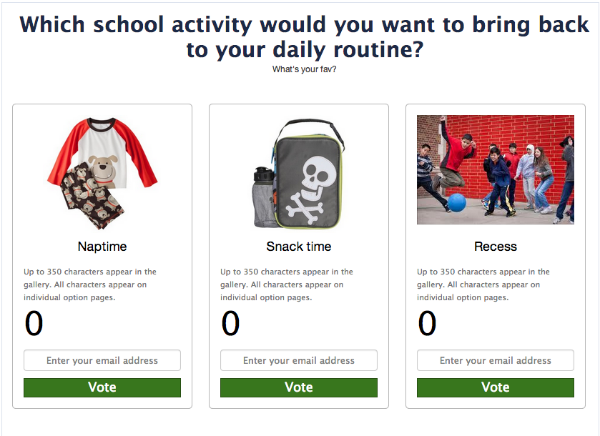
Rewards and gamification are two of the most powerful motivators for social media engagement. After all, who doesn’t like free stuff? But if there’s one thing I learned from my college economics class (literally one thing—economics wasn’t my strong suit), it’s that there’s no such thing as a free lunch. To create an engaging contest or promotion, your followers must earn what they receive, lest you suffer from the dangers of over rewarding on social media.
We’re conditioned to work for rewards. On social media, “work” can come in a variety of forms like retweeting a brand’s message, sharing a coupon on Facebook, or reviewing a new product on a personal blog. Work can even extend into gaming, encouraging followers to interact with a company’s social media page through branded games for the chance to win points, coupons or prizes. Here are some great examples of brands using gamification on Facebook.
The take-away for brands is two-fold: engaging a follower in interactive games or offering rewards for social interaction helps foster brand advocacy with that consumer. These tactics also, by the viral nature of social media, are broadcast to the follower’s network of (likely) similar-minded people, introducing the brand to a whole new community of consumers.
This type of reach is enticing for brands, and the positive feedback following a social media giveaway can be intoxicating. But brands must remain wary of the consequences of running too many promotions, particularly those requiring little to no work from followers. Over rewarding can diminish the value of these social media efforts by attracting users only seeking free rewards, and can discourage real, meaningful conversations. Dependence on frequent rewards can also put a drain on your social media budget as giveaways become the only way to gain feedback from expectant followers.
Cosmetics brand Lancôme recently announced a loyalty program that will reward fans’ engagement—from liking the brand on Facebook to sharing product updates on their personal accounts—with points that may be used to purchase Lancôme products. While promoting repeat consumption is a constant objective on social media, this kind of ‘purchased participation’ can encourage more formulaic engagement as opposed to building an emotional brand connection. I’ll be interested to see how this new program evolves across their social media channels.
So how can brands avoid falling victim to over rewarding on social media? Here are some helpful tips:
Using these strategies, you can successfully reach active participants on social media without diluting the quality of engagement. Need help getting started? Drop us a line.